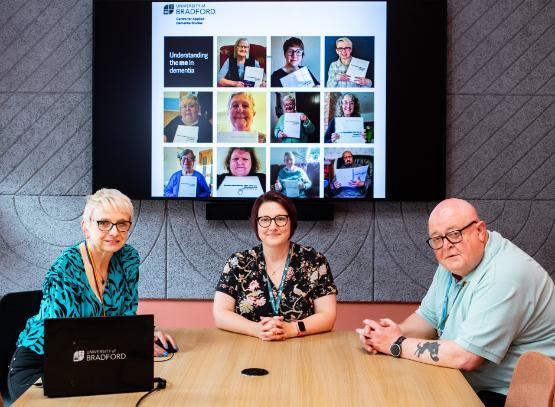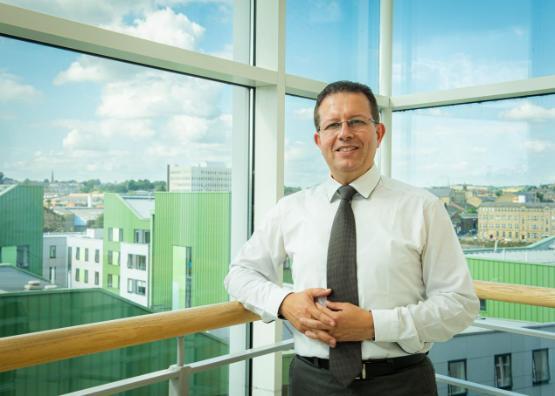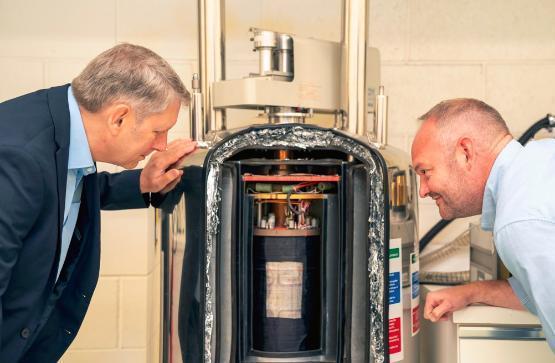University excels in business start-ups, according to latest KEF
University of Bradford has been rated outstanding for its commercialisation and business start-up activities in the latest Knowledge Exchange Framework (KEF) results, published by Research England (part of United Kingdom Research and Innovation).

This year’s KEF results (the fourth so far published) show the university is rated highly for continuous professional development, business start-ups, intellectual property and commercialisation. The results also said the university “generated excellent research across all disciplines.”
The ratings, published earlier this month, reflect the university’s investment in a new ‘enterprise ecosystem’ that encourages staff, students and members of the public to pitch business ideas.

Commenting on the results, Professor Sherif El-Khamisy, Pro-Vice-Chancellor for Research and Innovation, pictured above, said: “The latest KEF results show the University of Bradford excels in what we call ‘knowledge transfer’, which means taking cutting-edge academic knowledge and applying it to real-world situations, often helping companies innovate or improve products. We have a track record of working with businesses to help them improve their processes and also for commercialising intellectual property.
“We have also invested heavily in our enterprise ecosystem, where we actively encourage staff, students and members of the public to submit business ideas. We then use our expertise to help them take those ideas from concept to market. We aim to become the UK’s number one destination for business start-ups.”
Activity
Enterprise ecosystem: the £2.5m Bradford-Renduchintala Enterprise Ecosystem was launched in January and aims to accelerate business start-ups.
Digital Health Enterprise Zone: delivers services to our local community through a network of partnerships, nurtures business enterprise, and demonstrates excellence in interdisciplinary digital health research.

Pictured above: Dr Jason Jones and Dr Richard Telford look at a cross-section of a nuclear magnetic resonance machine.
Project CAYMAN (Chemistry Assets for Yorkshire MANufacturing): a European Regional Development Fund part-funded programme which started in 2019 and ran to June 2023 delivering analytical projects and training to Leeds City Region SMEs. The £2.2m programme saw £1.5m capital investment in advanced instrumentation, delivering free-of-charge innovation projects and training provision with over 50 business interactions, including 11 new products. Project CAYMAN has since been succeeded by Project SIBLING (Scientific Instrumentation for Business Leadership in Innovation and Growth), a £1.9 million programme co-funded by the UK Government through the UK Shared Prosperity Fund, allocated via West Yorkshire Combined Authority.
Careers and Employability: 70% of graduates progress into employment in West Yorkshire and 78-80% who enter employment do so into high-skilled jobs. Careers support also extends up to five years after graduation.
Experts by Experience: a group of people who are living with dementia, who have been actively engaged by the university to enhance its teaching provision, with group members involved in designing the ‘Me in Dementia MSc’, which has been shortlisted for a Times Higher Education award in the Outstanding Contribution to Local Community category.
